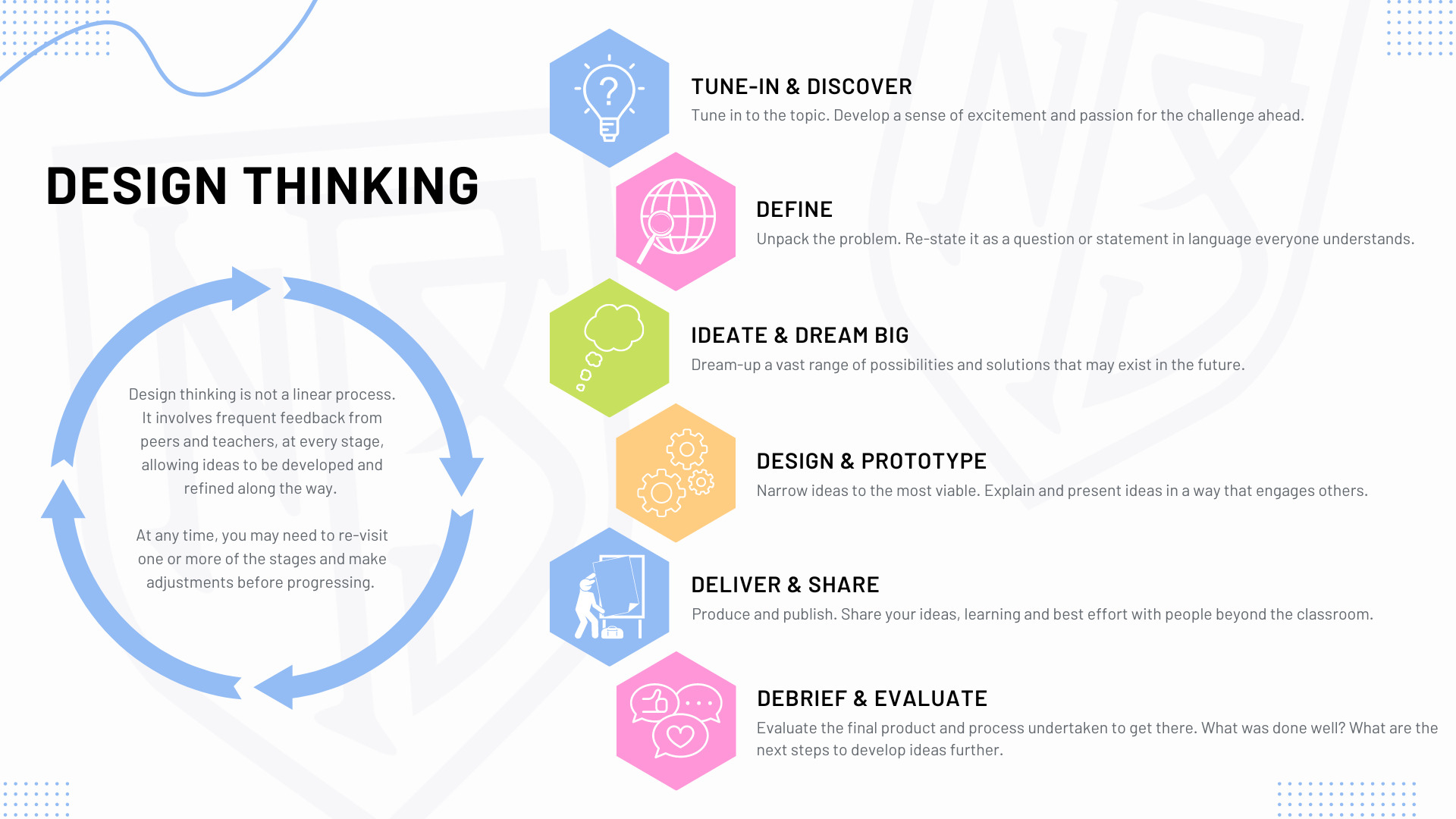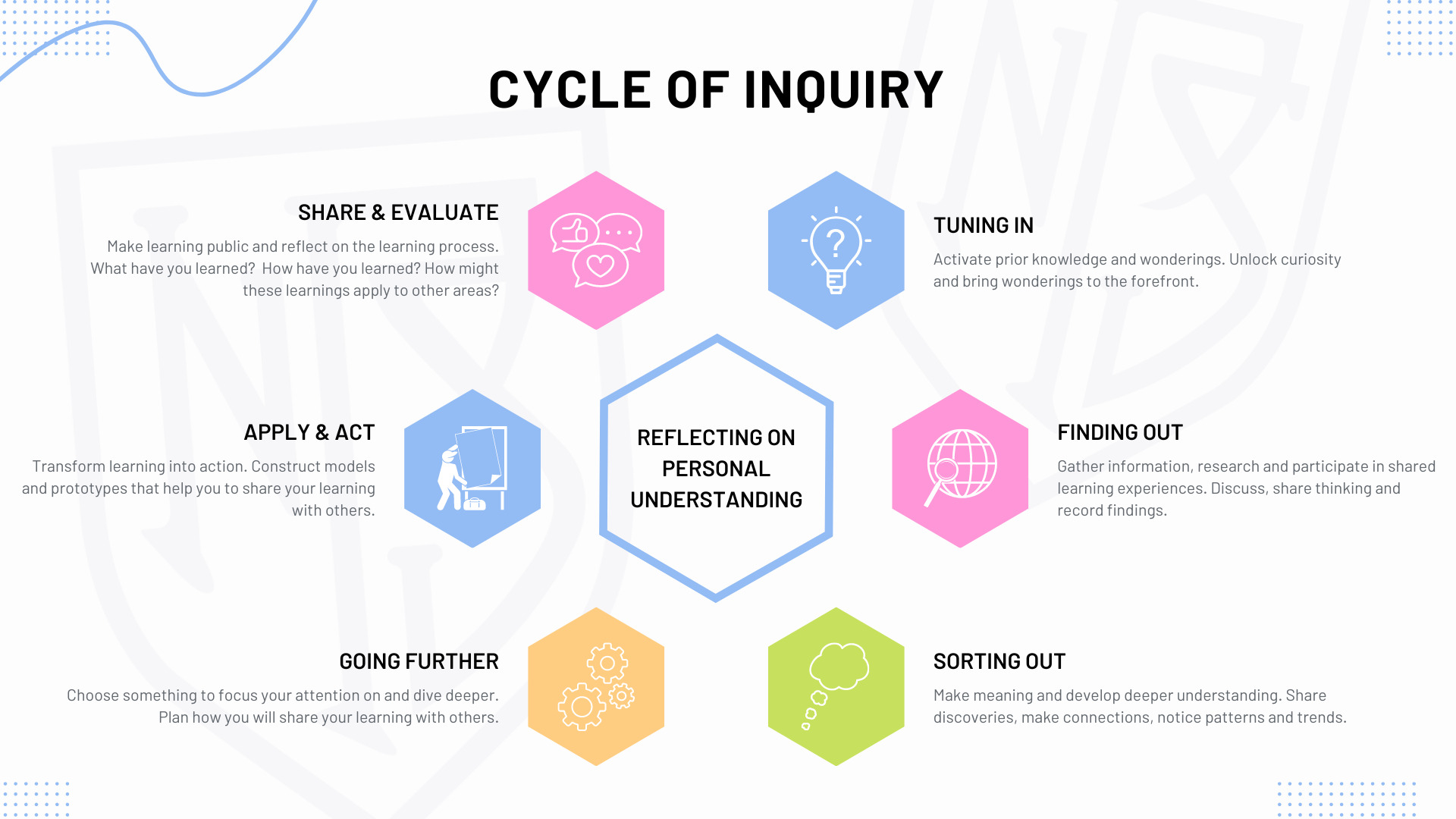Project Based Learning
Our school curriculum
NPS Design Thinking & Cycle of Inquiry
As critical, curious and creative learners at NPS, the Design Thinking and Cycle of Inquiry frameworks support us to think deeply and analyse the world around us, before dreaming and innovating what might come next…
Whilst both frameworks are suitable to guide authentic, challenging and engaging learning experiences for all ages, the Design Thinking framework is typically utilised in years 3-6, and the Cycle of Inquiry in years F-2.
2023 Driving Questions
A driving question frames the topic and drives the curriculum content, whilst connecting it to student lives and interests. It provokes thought & curiosity; generates discussion & debate; demands deep thought, analysis & explanation; and requires more than a yes/no answer.
Our 2023 driving questions are:
- Foundation: How can we look after special places for living things?
- Year 1: How have toys changed over time and how might we create a fun toy we can use today?
- Year 2: How can we be citizens for change?
- Year 3: How might we improve technology in our homes to make our everyday lives easier?
- Year 4: How might we select the best materials to create a toy or game that is durable?
- Year 5: How might we redesign our shared spaces around the school to improve learning and play spaces?
- Year 6: How might we adress a specific problem facing a chosen biome to ensure the long-term survival of a newly discovered animal?
Project Based Learning (or PBL) is a teaching pedagogy that immerses students in a real-world problem in which they will learn content and essential skills through the process of creating a solution and presenting this solution to an authentic audience. In Project Based Learning students need to ask questions to find the information, understandings and processes they will need to create a solution to the problem.
Teachers engage students in PBL units at least once per year, in Term 3, and their final products and processes are shared with the community at a whole school Exhibition of Learning.
Past topics include but will be different each year:
- Through the depletion or scarcity of natural resources, how could we repurpose used materials to be more sustainable?
- How can I be a super hero in my community?
- How can we create a fun and natural outdoor play space and environment?
- Who am I and how do we connect with others?
- The science of sound – how might we innovate a musical instrument that produces sound?
- What makes a community?
- Old McDonald is retiring. He needs the foundation students to take over the farm! What will they choose to be on their farm and how will they care for them?
Why do we want our students to engage with PBL?
To prepare our students for an unknown future. We don’t really know what the jobs of the future will be for our children, (although we do know that STEM professions are currently growing at twice the rate of other careers) but we do know that they will require more higher order thinking skills than previously. Our children will need to be able to analyse, evaluate and create more importantly than remembering, understanding and applying. We know that these lower order thinking skills are being replaced by automated technology – no longer do we need to memorise information – not when we can google the answers in seconds – or “Just ask Siri.” Our students need to know why this is not enough. Information is easily found, but students need the opportunity to learn how to use it successfully. Our world is changing so rapidly that we can’t prepare our kids for something in particular, so we must prepare them for anything! We need to teach students these multi-faceted skills so that they can tackle anything.
The importance of the 21st Century Skills of Communication, Collaboration and Critical & Creative reinforced in the Australian Curriculum general capability of Critical and Creative thinking, which states teachers need to give our students opportunities for:
- Inquiring
- Generating ideas and possible solutions
- Analysing, synthesising and evaluating reasoning
- Reflecting on the thinking and processes



